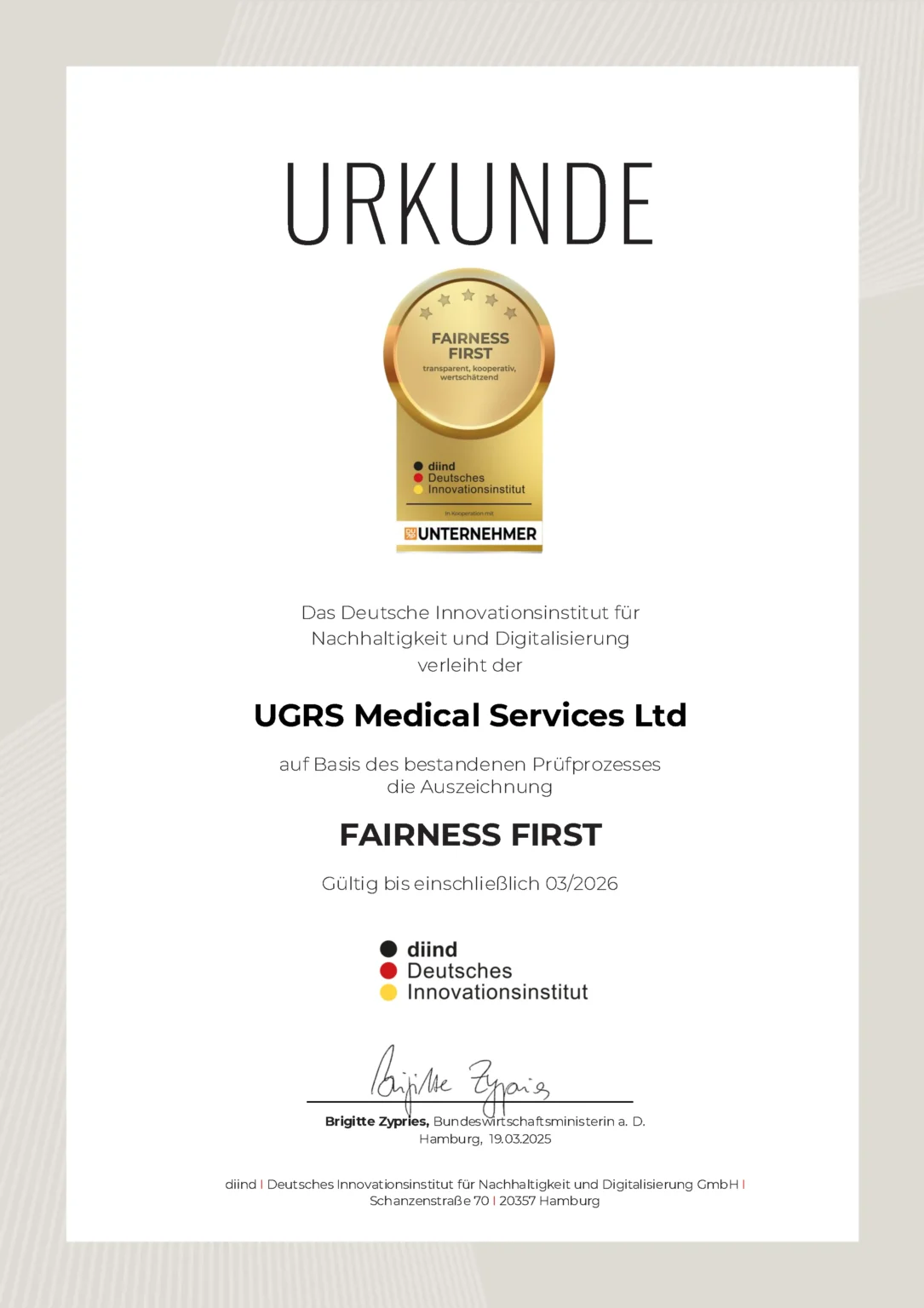Home » UGRS.Knowledge – Glossary on Penis Enlargement, Anatomy & Urology » Penile rehabilitation
Penile rehabilitation
Penile rehabilitation is a medical treatment concept that aims to restore or maintain natural erectile function after damage or strain to the penis – especially after prostate surgery. The aim is to promote the function of the erectile tissue as well as the nerve tracts and blood vessels in the penis and thus enable spontaneous erections in the long term.
The term is often used in connection with the treatment of men who have undergone surgery(radical prostatectomy) or radiotherapy due to prostate cancer. After such procedures, the nerves and blood vessels responsible for erection can be damaged, leading to erectile dysfunction (erectile dysfunction).
Penile rehabilitation often begins shortly after the procedure in order to prevent tissue changes (e.g. fibrosis, i.e. hardening and shrinkage of the erectile tissue). It can last from weeks to months – sometimes even over a year.
Possible measures in the context of penile rehabilitation:
- PDE-5 inhibitors (e.g. sildenafil / Viagra): Drugs that promote blood flow in the penis.
- Vacuum pump: A mechanical aid that produces an erection by means of negative pressure.
- Cavernous body auto-injection therapy: self-injection of a drug into the penis to directly induce an erection.
- Penile prosthesis (in severe cases): Surgically inserted implant to mechanically produce an erection.
- Pelvic floor training: muscle training to support sexual function.
- Hormone treatment (for testosterone deficiency)
Psychological support is also an important part of penile rehabilitation. Many men not only suffer physically after prostate surgery, but also emotionally – for example, from fear of failure, feelings of shame or loss of self-esteem.
This content is for general information purposes only and does not constitute medical advice, diagnosis or treatment recommendations. It is in no way a substitute for a professional examination or treatment by a licensed physician. If you have any health complaints or uncertainties, please always consult a medical professional – especially if you have any questions about intimate surgery or sexual health.








